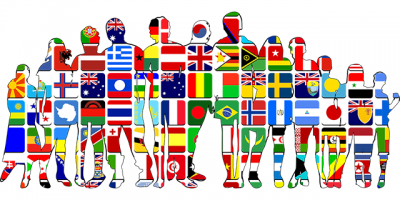
Though most in our society acknowledge, and perhaps some even relish the existence of socioeconomic privilege, color privilege is highly debated. Articles such as “It’s Past Time to Acknowledge Black Privilege” by William A. Levinson and books like Black Skin Privilege and the American Dream offer commentary from whites that posit blackness as an inviting choice and “tremendous asset,” so much, that some whites are now trying to “pass” as Black.
Peggy McIntosh, activist and retired Wellesley College professor, offered a different perspective in her groundbreaking 1988 article, “White Privilege: Unpacking the Invisible Knapsack”. Often attributed as popularizing the concept of white privilege, McIntosh shared 46 real-life examples in which she reaped the benefit of unearned assumptions that her Black neighbors and friends did not.
One of the many examples she chronicled included freedom from the necessity to educate her children about systemic racism for their own daily physical protection. As pivotal events such as the murder of George Floyd draw our attention to how precarious physical safety can be for Black Americans, we too are grappling with how best to educate ourselves and engage in discussions about race and its societal implications. This concept is referred to as critical race theory (CRT) .
 CRT recognizes systemic racism as societally embedded and endemic to our nation’s history. CRT includes a movement of academics that challenges beliefs that allow and perpetuate oppression and exploitation of Black Indigenous and Persons of Color (BIPOC). Some are reticent to explore our country’s history of White supremacy, associated laws, systems, and practices in the classroom. Such exploration is decidedly painstaking because it requires a nation to embrace maturity, self-reflection, and the ability to “see” color and privilege in its discussions about color privilege.
CRT recognizes systemic racism as societally embedded and endemic to our nation’s history. CRT includes a movement of academics that challenges beliefs that allow and perpetuate oppression and exploitation of Black Indigenous and Persons of Color (BIPOC). Some are reticent to explore our country’s history of White supremacy, associated laws, systems, and practices in the classroom. Such exploration is decidedly painstaking because it requires a nation to embrace maturity, self-reflection, and the ability to “see” color and privilege in its discussions about color privilege.
One Fairfax Policy*, our county’s racial and social justice policy, challenges status quo beliefs about color, privilege, and access. The policy recognizes the historical existence in Fairfax County of color privilege that fosters disparities and actively seeks to eliminate oppression of BIPOC in Fairfax County.
In alignment with One Fairfax and the county’s strategic plan, Domestic and Sexual Violence Services (DSVS) is finalizing developments of its strategic plan that includes six priority areas that will help our division make decisions, set policies, allocate resources, implement strategies, and measure results. These priority areas are outlined as follows and will be discussed in detail in upcoming editions of “Cultivating Seeds of Equity and Justice” fall 2021:
1) become more data informed;
2) integrate equity and social justice;
3) streamline services;
4) assess, improve and deepen relationships;
5) update technology, systems, and processes; and
6) improve/elevate services to address sexual violence.
—DSVS Equity Impact Team
*Fairfax County is committed to nondiscrimination on the basis of disability in all county programs, services and activities. To request reasonable accommodations or to receive this information in an alternate format, call 703-324-7329 or TTY 711.
This article posting is part of the Domestic and Sexual Violence Services' Volunteer Voices monthly newsletter for current and potential volunteers. If you're not already a volunteer, learn how to get involved. Find out about upcoming trainings, volunteer trainings, happenings around the DSVS office and information about articles, books, media recommendations and more.
Learn more about the Domestic and Sexual Violence Services (DSVS).

